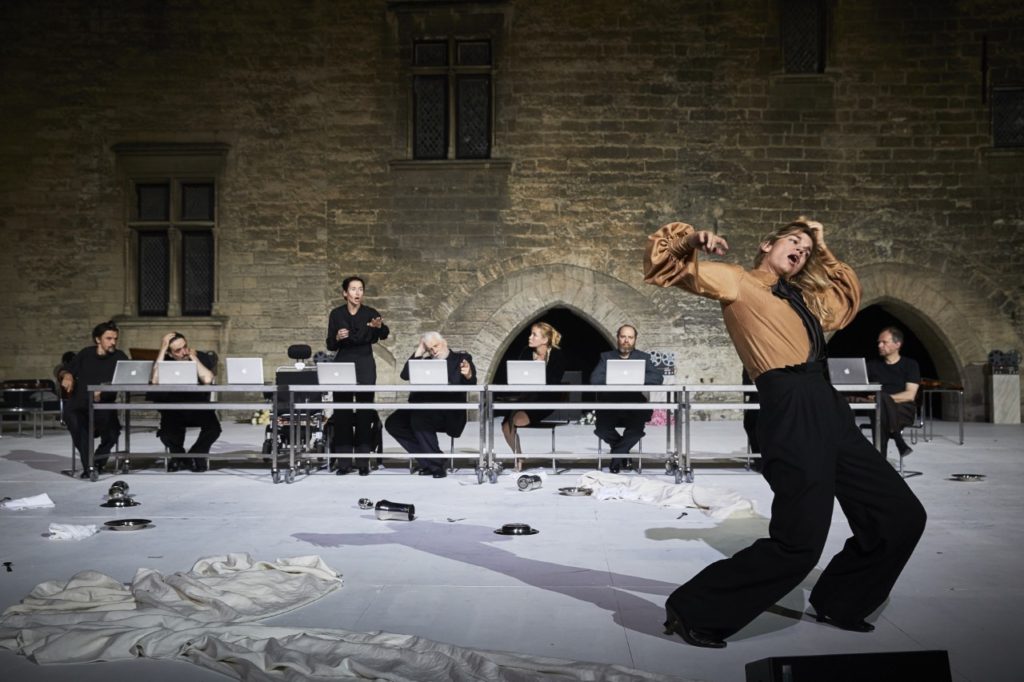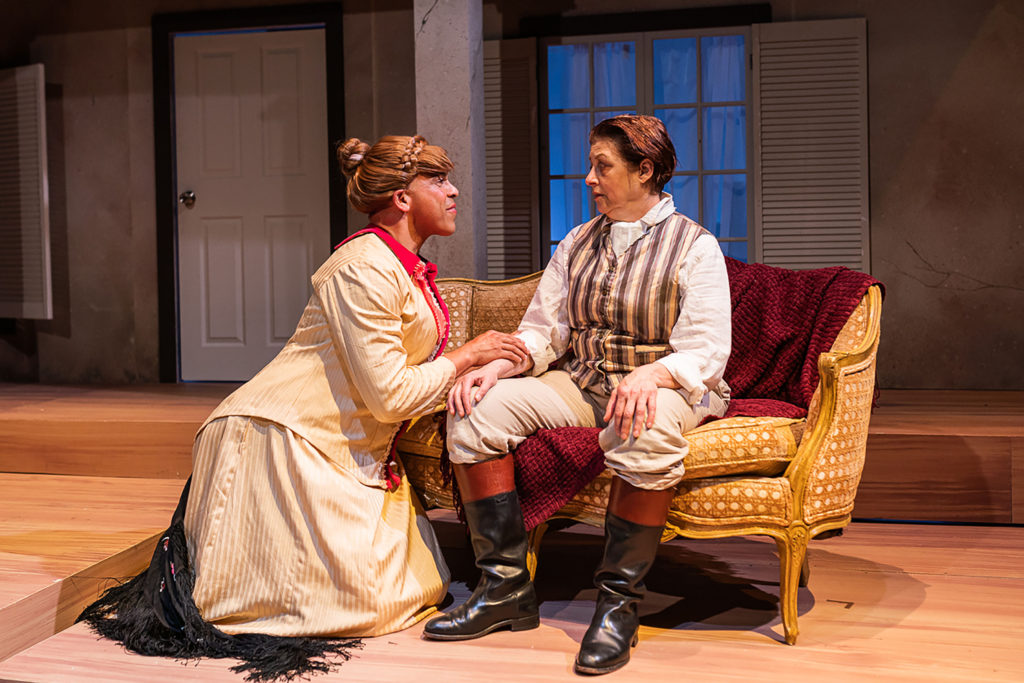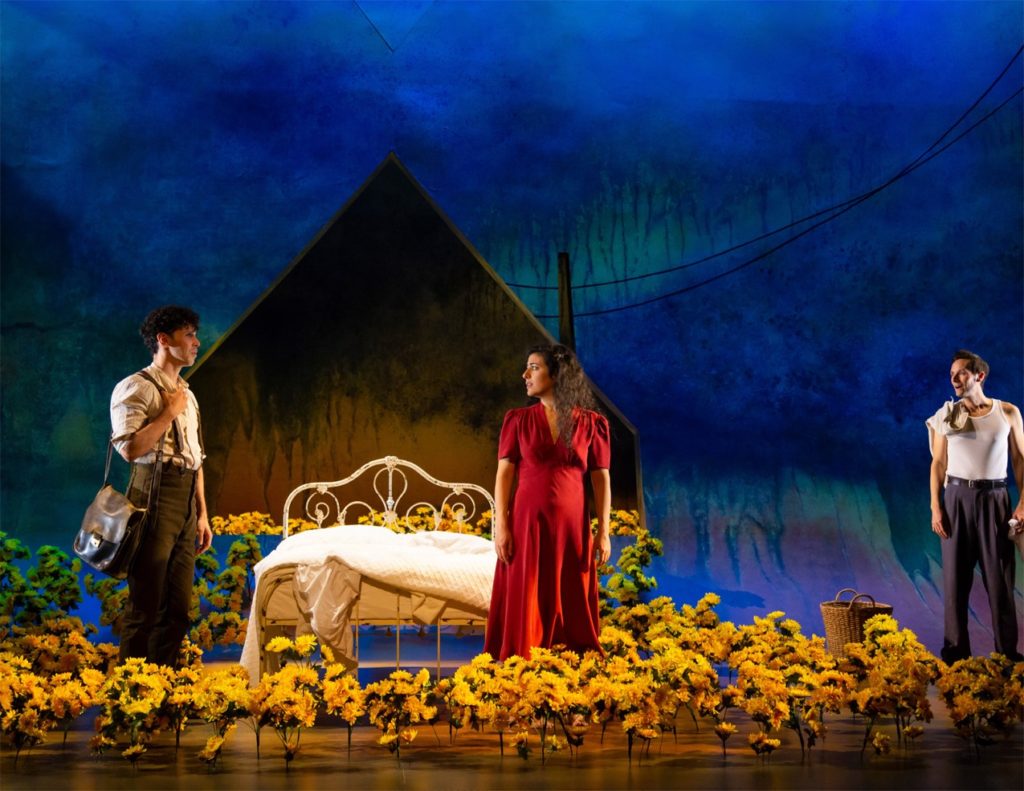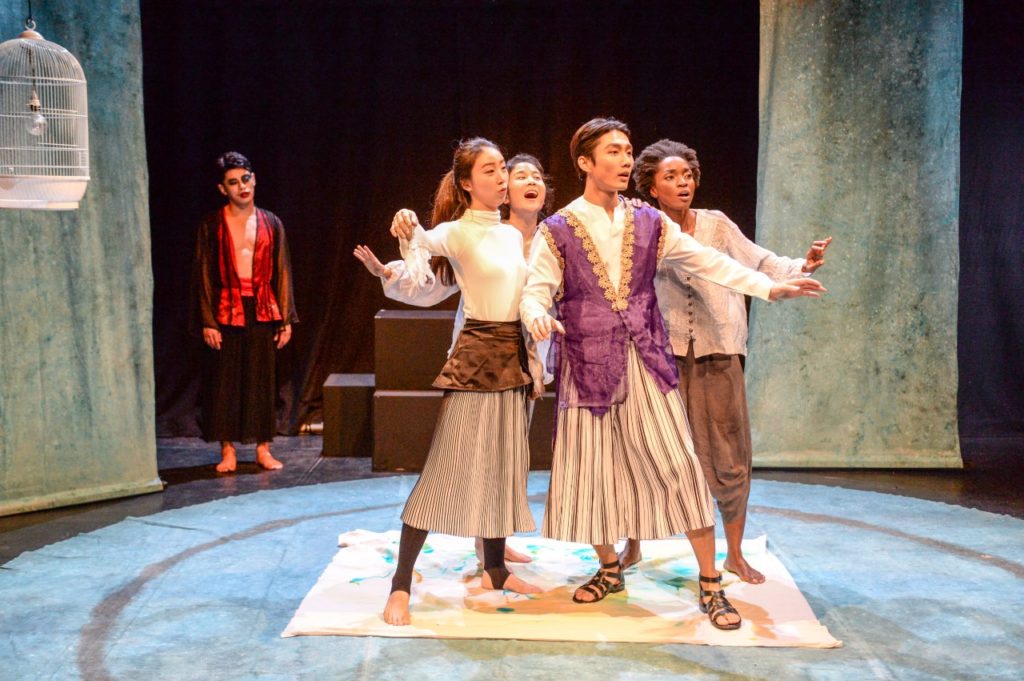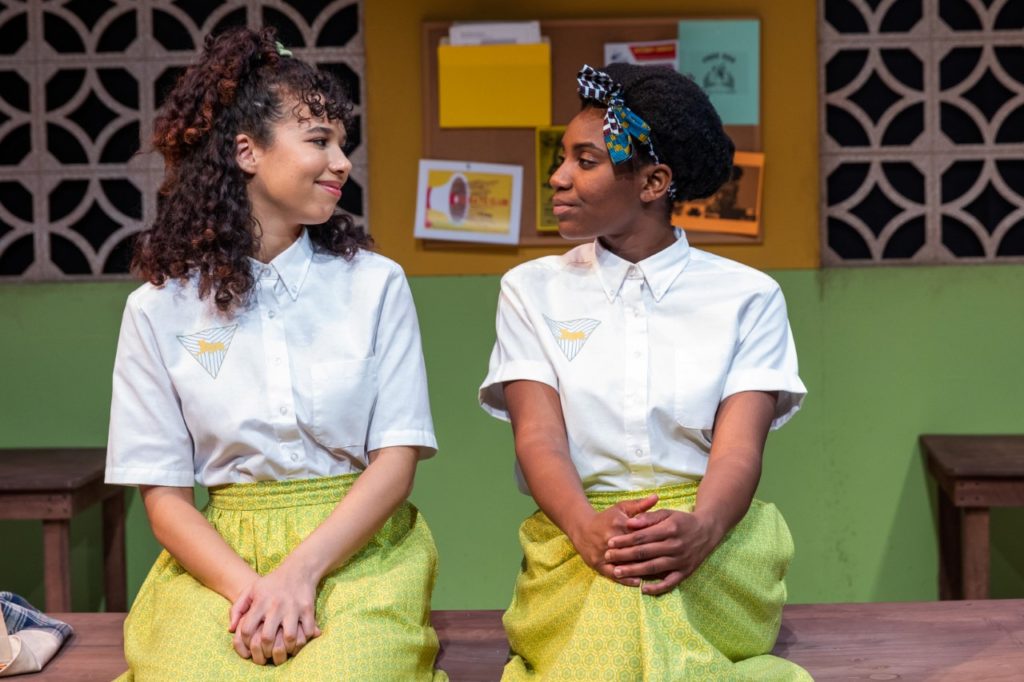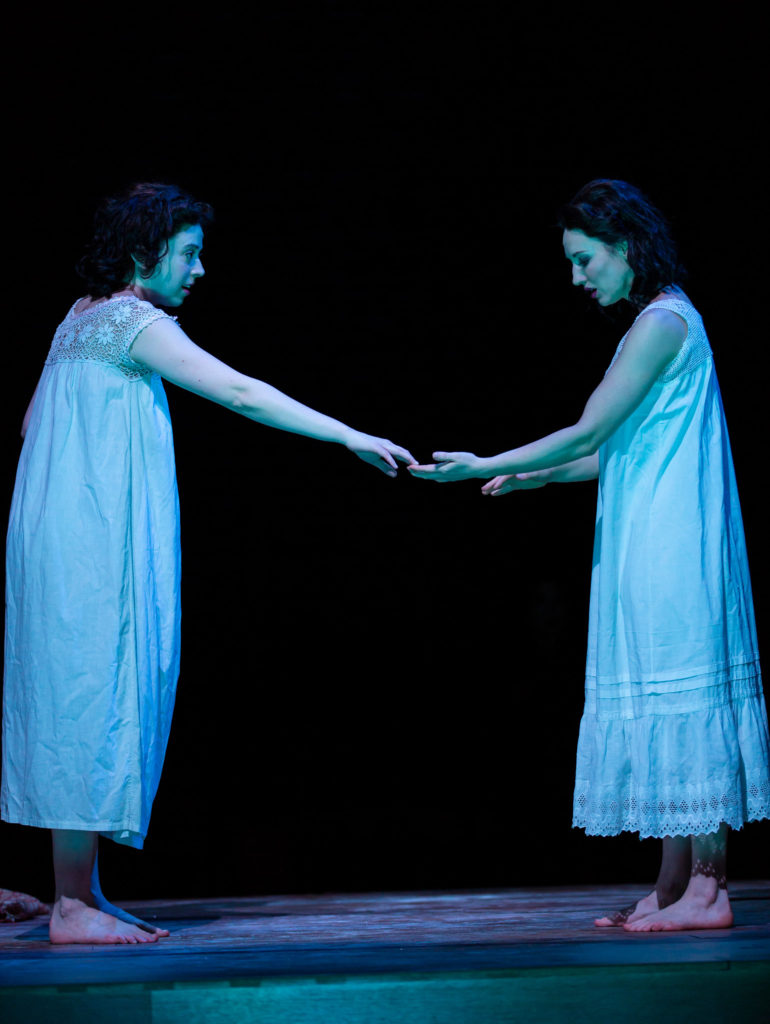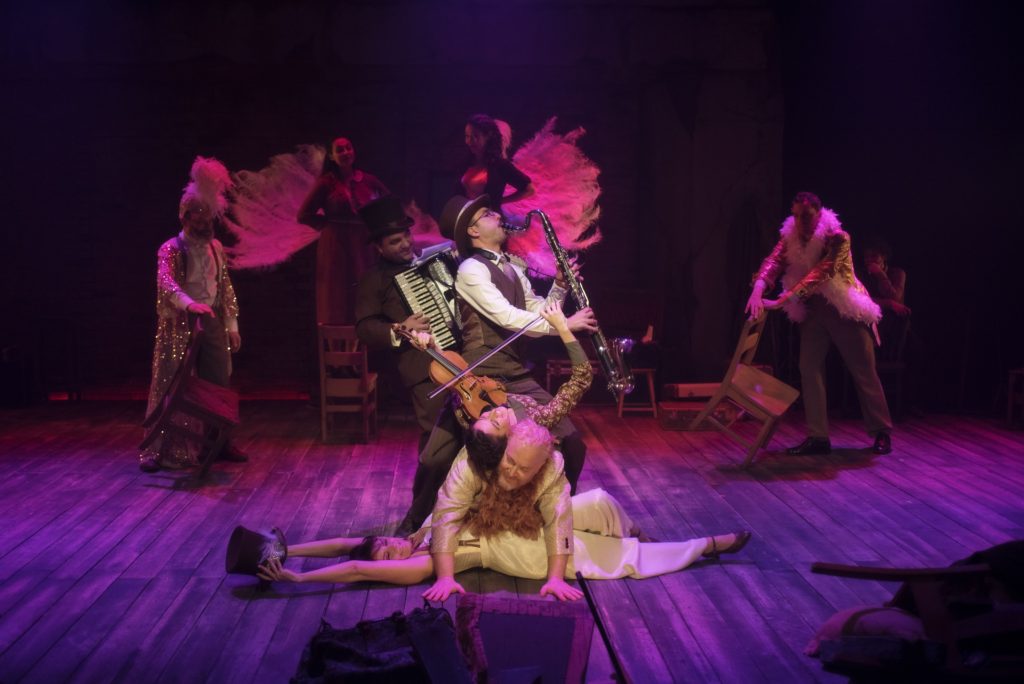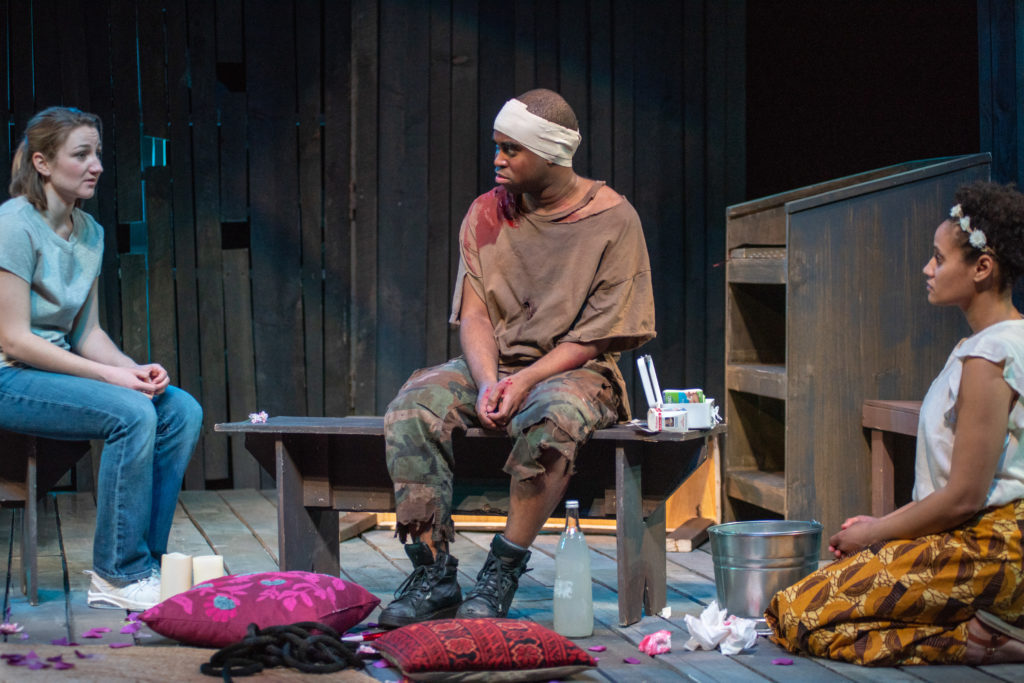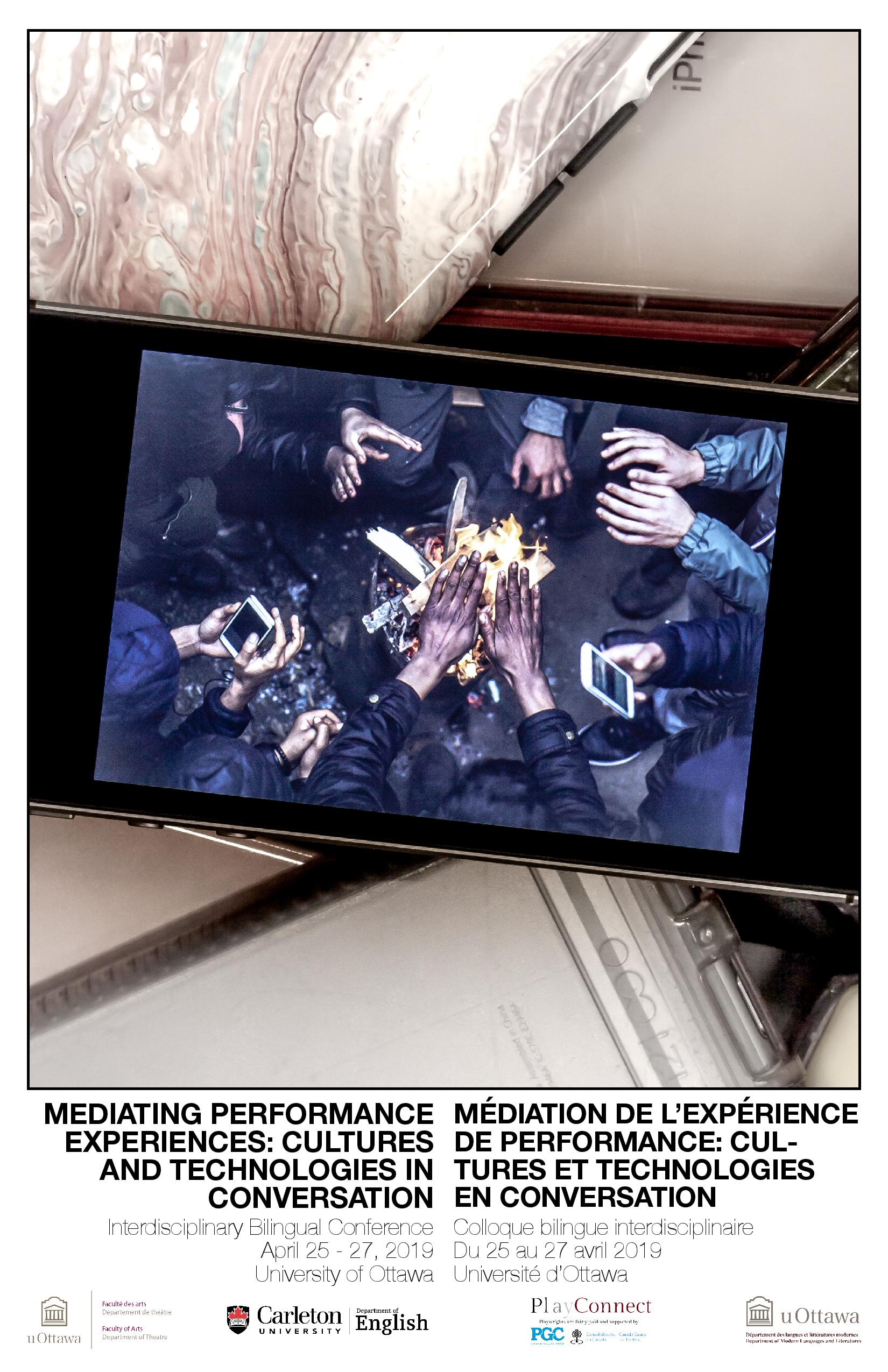Avignon 2019: Seeking Truth: on history, memory and fiction in Alexandra Badea’s Points de non-retour [Quais de Seine}
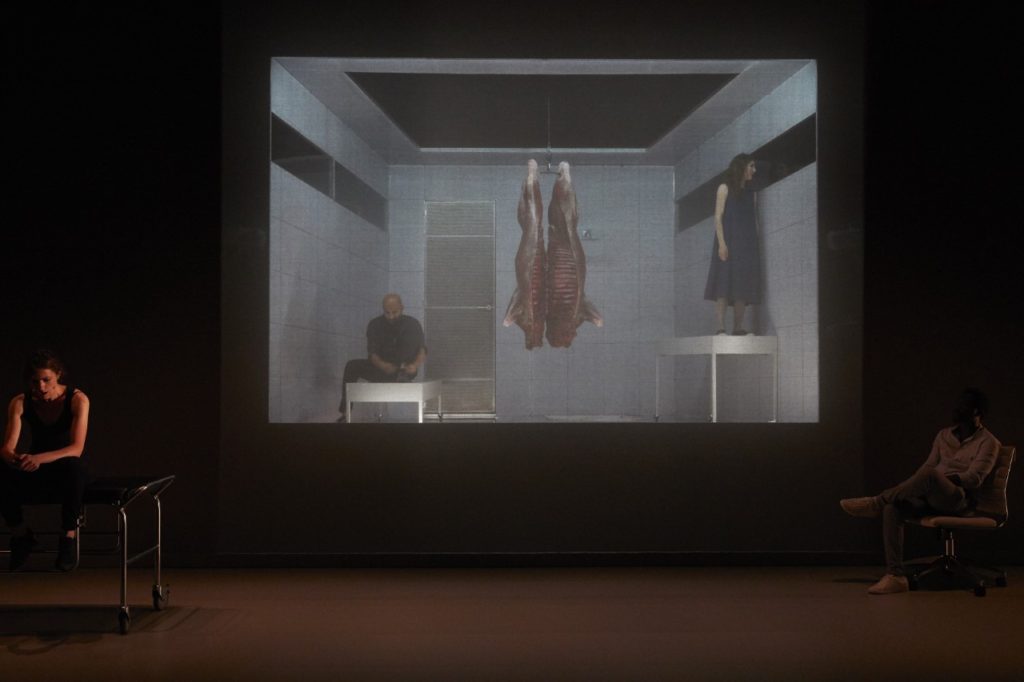
Unlike the first part, Thiaroye, that focused on the 1944 massacre of Senegalese infantrymen in Thiaroye reflected in the stories of its fictional characters Biram and Régis the descendants of the massacre’s victims, Quais de Seine focuses on Nora, a young journalist from France, and a connecting protagonist of the trilogy. It gives Nora (played by Sophie Verbeeck) a chance to find truth about her own family, to uncover silence that surrounds the disappearance of her father, the absence of her grandfather and the secret origin of her own name.
Based on the recent history of France, the trilogy is also personal to Badea. A French writer of Romanian origin, Alexandra Badea came to France in 2003 to practice her French writing skills. A naturalized citizen since 2013, Badea remains highly sensitive to the questions of responsibility that comes with the privilege of holding a citizenship. To Badea, the right of citizenship imposes moral duty, as holding citizenship invites the artist to better understand the official history of the country she now belongs to and that of the people whose stories do not appear in this country’s authorized narratives or history books. These untold, forgotten or purposefully silenced stories that make the history of French colonial invasions in sub-Saharan Africa, the massacre in Thiaroye, and the Algerian war of independence, are in the centre of dramatic focus in Points de non-retour. …
